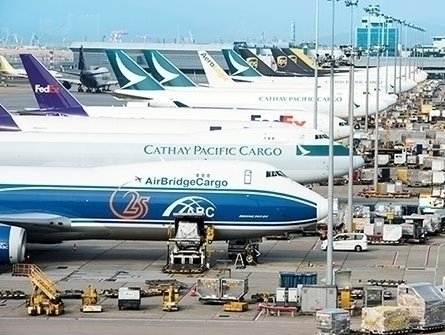
Hong Kong tops ACI World’s 2019 rankings as largest cargo hub
Air cargo volume dropped 3.9 percent at the world’s top 20 airports as they handled 48 million metric tonnes of cargo.

Against a challenging economic backdrop, air cargo volume experienced a decline of 3.9 percent at the world’s top 20 airports as they handled a combined 48 million metric tonnes of cargo in 2019, Airports Council International (ACI) World revealed in its preliminary world airport traffic rankings.
While Hong Kong Airport remained the largest air cargo hub, handling 4.8 million metric tonnes of cargo in 2019, its volumes shrunk 6.1 percent compared to the previous year’s figures. In Q1 2020, however, Hong Kong Airport handled 988000 metric tonnes of cargo as against 1.1 million metric tonnes in the first quarter of 2019, translating to shrinkage of 10.9 percent over the previous year. Memphis Airport came in second while Shanghai Airport took the third place. All three airports experienced considerable declines in the first quarter of 2020 while Louisville Airport and Incheon recorded growth in cargo during the first stages of the Covid-19 outbreak. Louisville Airport witnessed a 2.2 percent growth in cargo volumes in Q1 2020 at 628,942 metric tonnes while Incheon climbed 2.5 percent with 664,889 metric tonnes of cargo handled in the first three months of 2020.

Total air cargo traffic and year-over-year percentage change
“This year will pose major and unprecedented challenges for the industry as the impacts of travel restrictions and lockdown measures introduced in response to the pandemic remain an existential threat to the aviation industry unless governments can provide appropriate relief and assistance,” said Angela Gittens, director general, ACI World.
The ongoing Covid-19 crisis has brought airports around the world to a virtual standstill, resulting in airport traffic and revenue losses across all regions.
Read also: Hong Kong tops ACI’s world busiest cargo airport ranking

